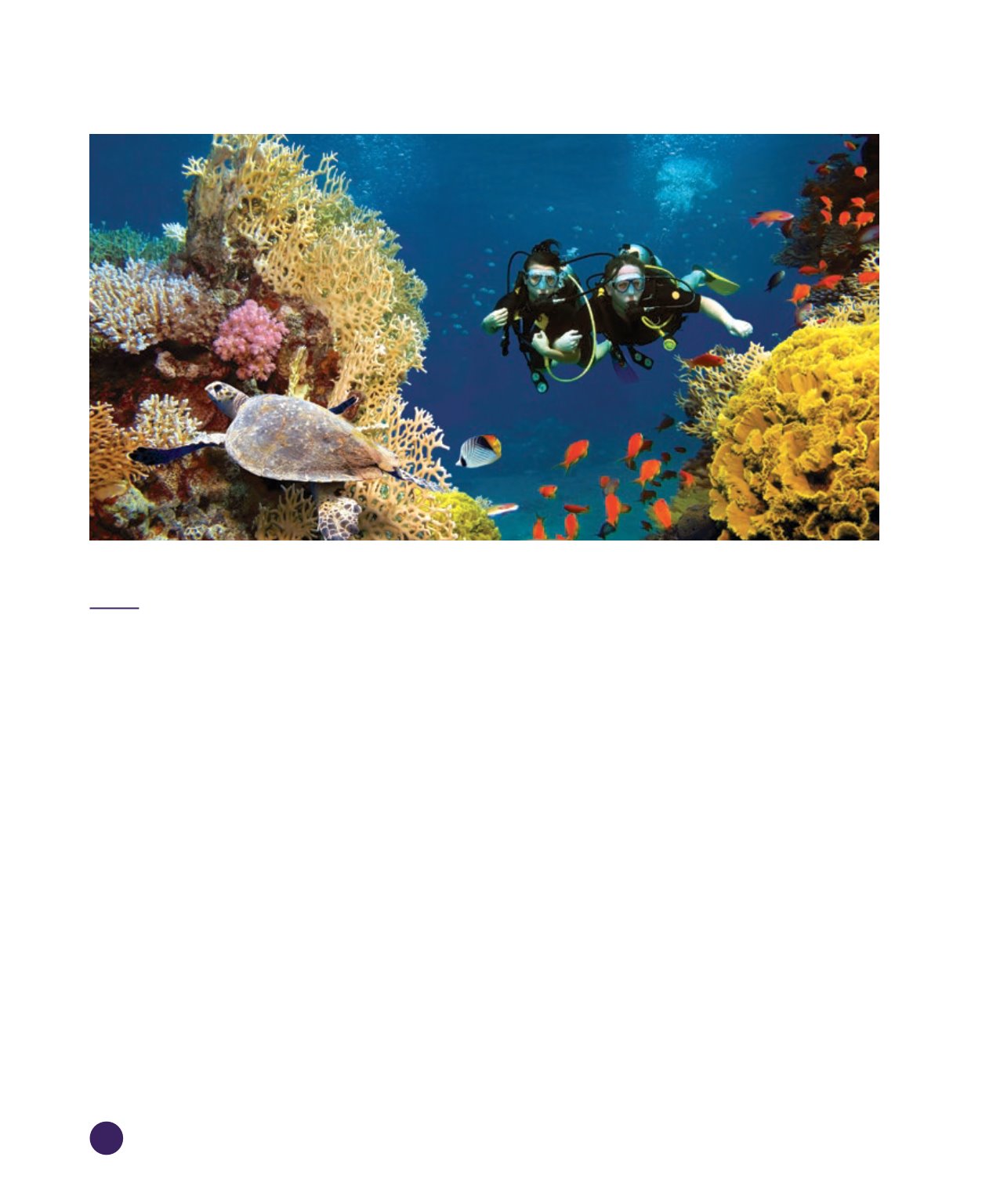

242
Borneo Bulletin Yearbook 2021
DIVING
Brunei has slowly grown to be the go-to diving
destination. Its budding diving scene is fairly new,
with the rst diving company starting operations
within the past decade.
While the diving scene has garnered growing
numbers of local and international divers, these dive
spots are a great option for those who wish to beat
the crowds in other diving hotspots.
Brunei’s waters are located in the outskirts of the
Coral Triangle, hosting 4,500 hectares of untouched
coral reef. Deep beneath the waters are shipwrecks,
some from World War II, as well as sunken oil rigs.
Somewrecks are only accessible for technical divers
due to their depths, rendering them unsuitable as
recreational diving spots.
Brunei’s dry season is between March and October,
when diving is highly recommended. During these
months, the sea is calm and divers are likely to
encounter deeper underwater visibility. Brunei’s
water averages 25-28 degrees Celsius, a warm
tropical temperature ideal for diving.
These conditions coupled with exotic marine life in
vast quantities are perfect for macro photography,
attracting underwater photographers. Examples of
these marine lives include the largest species of
nudibranch, leopard shrimps, lion sh and some of
the world’s largest concentrations of allied cowries.
Two of the most prominent diving operators in the
Sultanate are Oceanic Quest and Poni Divers. Both
are situated in the Brunei-Muara District around the
Serasa area.
Founded in 2010, the Oceanic Quest is the rst
company in Brunei dedicated speci cally to diving,
staffed with experienced divemasters. Meanwhile,
on top of diving, Poni Divers also conducts other
watersport activities such as wakeboarding, banana
boat rides and jet skiing.
In 2017, both companies were tapped by the
TourismDevelopment Board for a joint collaboration
to further promote Brunei’s diving scene.
DIVE SITES
Australian Wreck
One of the Sultanate’s most well-known diving sites
is the Australian wreck. It lies on its port side at a
50-degree angle and is slowly collapsing into the
sand at 35 metres under the sea. Originally a Dutch
passenger/cargo steamer called the S.S. De Clerk,
the AustralianWreckwas thought to be an Australian
shiporaJapaneseshipsunkbyanAustraliantorpedo,
hence the origin of its name. However, it was later
proven that both theories were incorrect.
In 1942, it was converted into a troop carrier during
World War II. On September 16, 1944, while carrying
1,210 personnel from the Philippines to Singapore,
the ship – renamed the Imbari Maru by the Japanese









